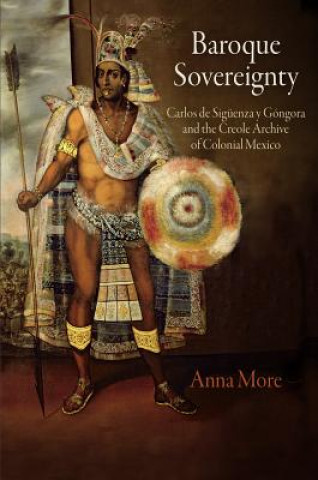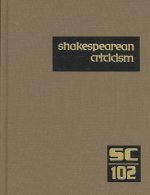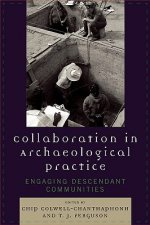
Kód: 04724423
Baroque Sovereignty
Autor Anna More
In the seventeenth century, even as the Spanish Habsburg monarchy entered its irreversible decline, the capital of its most important overseas territory was flourishing. Nexus of both Atlantic and Pacific trade routes and home to ... celý popis
- Jazyk:
 Angličtina
Angličtina - Vazba: Pevná
- Počet stran: 360
Nakladatelství: University of Pennsylvania Press, 2012
- Více informací o knize

Mohlo by se vám také líbit
-

Getting Past No
306 Kč -

Never Far From Nowhere
286 Kč -

Bioprocessing for Value-Added Products from Renewable Resources
6317 Kč -

Shakespearean Criticism
17970 Kč -

Liberty after Liberalism
1681 Kč -

Collaboration in Archaeological Practice
2101 Kč -

Infection, Resistance, and Immunity, Second Edition
6521 Kč
Dárkový poukaz: Radost zaručena
- Darujte poukaz v libovolné hodnotě a my se postaráme o zbytek.
- Poukaz se vztahuje na celou naši nabídku.
- Elektronický poukaz vytisknete z e-mailu a můžete ihned darovat.
- Platnost poukazu je 12 měsíců od data vystavení.
Více informací o knize Baroque Sovereignty
Nákupem získáte 265 bodů
 Anotace knihy
Anotace knihy
In the seventeenth century, even as the Spanish Habsburg monarchy entered its irreversible decline, the capital of its most important overseas territory was flourishing. Nexus of both Atlantic and Pacific trade routes and home to an ethnically diverse population, Mexico City produced a distinctive Baroque culture that combined local and European influences. In this context, the American-born descendants of European immigrants-or creoles, as they called themselves-began to envision a new society beyond the terms of Spanish imperialism, and the writings of the Mexican polymath Carlos de Siguenza y Gongora (1645-1700) were instrumental in this process. Mathematician, antiquarian, poet, and secular priest, Siguenza authored works on such topics as the 1680 comet, the defense of New Spain, pre-Columbian history, and the massive 1692 Mexico City riot. He wrote all of these, in his words, "out of love for my patria." Through readings of Siguenza y Gongora's diverse works, Baroque Sovereignty locates the colonial Baroque at the crossroads of a conflicted Spanish imperial rule and the political imaginary of an emergent local elite. Arguing that Spanish imperialism was founded on an ideal of Christian conversion no longer applicable at the end of the seventeenth century, More discovers in Siguenza y Gongora's works an alternative basis for local governance. The creole archive, understood as both the collection of local artifacts and their interpretation, solved the intractable problem of Spanish imperial sovereignty by establishing a material genealogy and authority for New Spain's creole elite. In an analysis that contributes substantially to early modern colonial studies and theories of memory and knowledge, More posits the centrality of the creole archive for understanding how a local political imaginary emerged from the ruins of Spanish imperialism.
 Parametry knihy
Parametry knihy
Zařazení knihy Knihy v angličtině Humanities History Regional & national history
2647 Kč
- Plný název: Baroque Sovereignty
- Podnázev: Carlos De Siguenza Y Gongora and the Creole Archive of Colonial Mexico
- Autor: Anna More
- Jazyk:
 Angličtina
Angličtina - Vazba: Pevná
- Počet stran: 360
- EAN: 9780812244694
- ISBN: 0812244699
- ID: 04724423
- Nakladatelství: University of Pennsylvania Press
- Hmotnost: 748 g
- Rozměry: 229 × 152 × 36 mm
- Datum vydání: 05. December 2012
Oblíbené z jiného soudku
-

Hundred Years' War on Palestine
338 Kč -

Ethnic Cleansing of Palestine
357 Kč -

History of Japan
405 Kč -

Ten Myths About Israel
336 Kč -

Strange Death of Europe
410 Kč -

Decline and Fall of the Roman Empire
130 Kč -

Secret History
303 Kč -

God's Playground A History of Poland
1700 Kč -

Mayflower
385 Kč -

How to be a Victorian
357 Kč -

Plantagenets
331 Kč -

General's Son
429 Kč -

Iran: A Very Short Introduction
225 Kč -

Temples of Karnak
3798 Kč -

Cuneiform
276 Kč -

Twenty Years A-Growing
250 Kč -

History of Witchcraft in England from 1558 to 1718
453 Kč -

China in Africa
894 Kč -

Islandman
250 Kč -

Bohemian Paris
414 Kč -

Alexiad
423 Kč -

Lancaster And York
388 Kč -

Inside Hitler's Greece
513 Kč -

Modern France: A Very Short Introduction
233 Kč -

Diana: Her True Story - In Her Own Words
306 Kč -

The Fourth Turning
441 Kč -

The Oxford History of Ancient Egypt
384 Kč -

Churchill: The Power of Words
410 Kč -

Palestine
534 Kč -

Korean History in Maps
706 Kč -

Great Gatsby (Wisehouse Classics Edition)
405 Kč -

Viking Way
1144 Kč -

The Thirteenth Tribe
308 Kč -

My Promised Land
517 Kč -

Vanished Kingdoms
514 Kč -

Age Of Revolution
410 Kč -

Life and Death of Anne Boleyn
624 Kč -

Coming of the Third Reich
464 Kč -

Children of Ash and Elm
462 Kč -

Europe Between the Oceans
798 Kč -

Socialism Betrayed
475 Kč -

303 Squadron
464 Kč -

Ancient Celts, Second Edition
624 Kč -

Dancing in the Glory of Monsters
395 Kč -

Battle of Britain: Luftwaffe Blitz (Images of War)
606 Kč -

Age of Confucian Rule
851 Kč -

Beyond Band of Brothers
410 Kč -

Benjamin Franklin
410 Kč -

On China
462 Kč
Osobní odběr Praha, Brno a 12903 dalších
Copyright ©2008-24 nejlevnejsi-knihy.cz Všechna práva vyhrazenaSoukromíCookies



 Vrácení do měsíce
Vrácení do měsíce 571 999 099 (8-15.30h)
571 999 099 (8-15.30h)